‘It’s a vicious circle’: Spanish wildfire blamed on rural depopulation and climate change
Old farming methods, which created natural breaks to help stop the spread of fires, have been abandoned as more people move to the cities, writes Graham Keeley

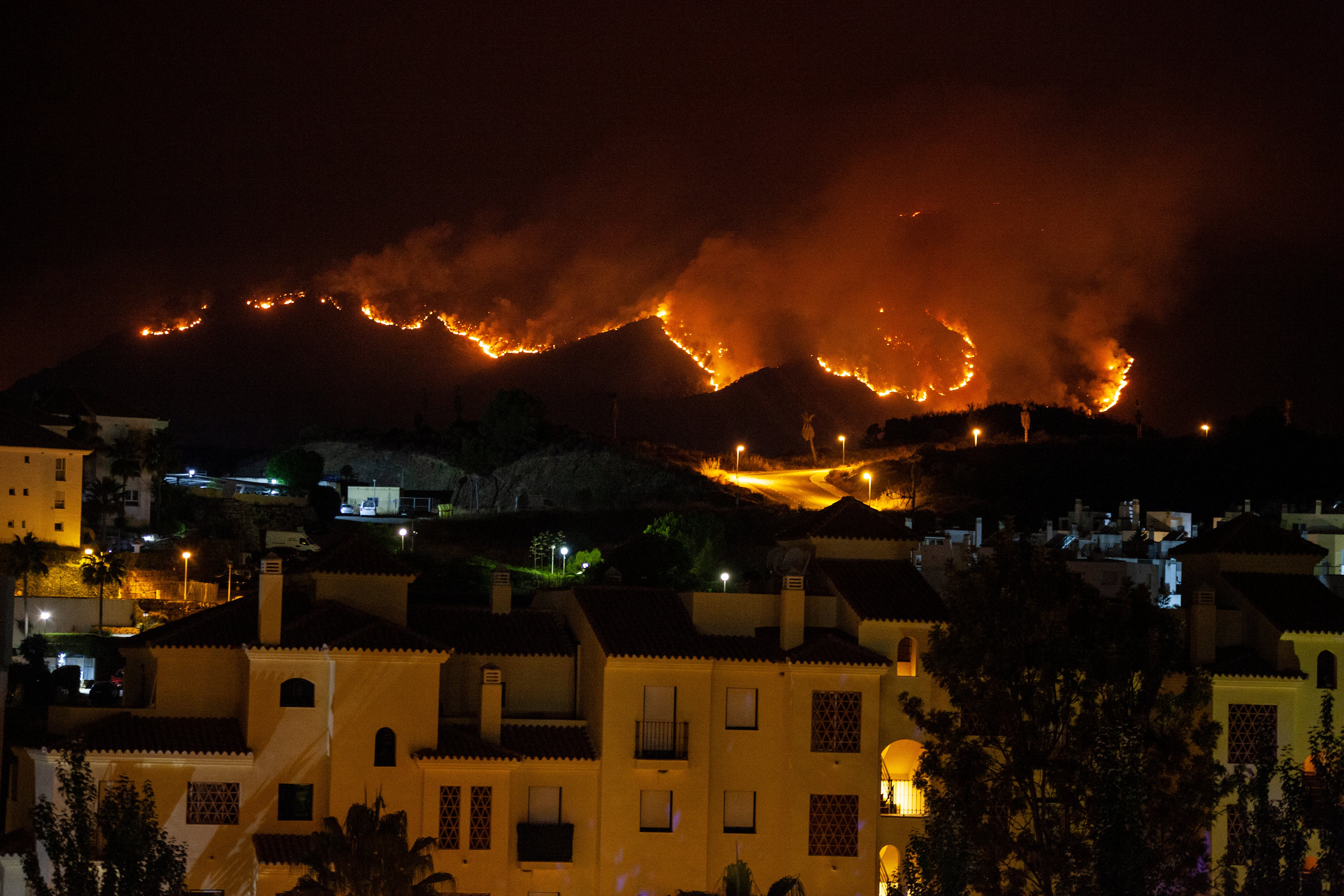
Spain’s worst wildfire in recent memory was finally brought under control on Tuesday after claiming the life of one firefighter and forcing the evacuation of thousands. Fire chiefs and experts said the “super forest fire” was accelerated by rural depopulation and the climate crisis.
The blaze in the Sierra Bermeja mountains above the Costa del Sol resort of Estepona, which destroyed over 7,700 hectares (19,000 acres) of woods and shrubs, was halted after six days, helped by light rain through the night.
Despite the efforts of 500 firefighters and 51 water-dropping planes and helicopters to bring the fire under control, it spread across villages in the mountain, forcing the evacuation of about 2,600 people.
Firefighter Carlos Martinez Haro, 44, a father-of-two, was killed on Thursday while battling the blaze. Two other firefighters were also injured.
In a part of southern Spain popular with British tourists and expatriates, hundreds were returning to their charred homes.
Carmen Crespo, the agriculture minister of the Andalusian regional government, said investigators believed the fire was started intentionally as it appeared to have started in two different places.
However, experts and the head of the Andalusian fire service said the underlying reason for the virulence of this blaze was decades of rural depopulation and searing heat caused by climate change which dried vegetation in the area.
“We are facing the complex fire known by the forestry extinction services in recent years,” said Juan Sanchez, director of Infoca, the Andalusian fire service.
“We have been talking a lot about the consequences of the abandonment of rural areas and climate change. We are seeing them today.”
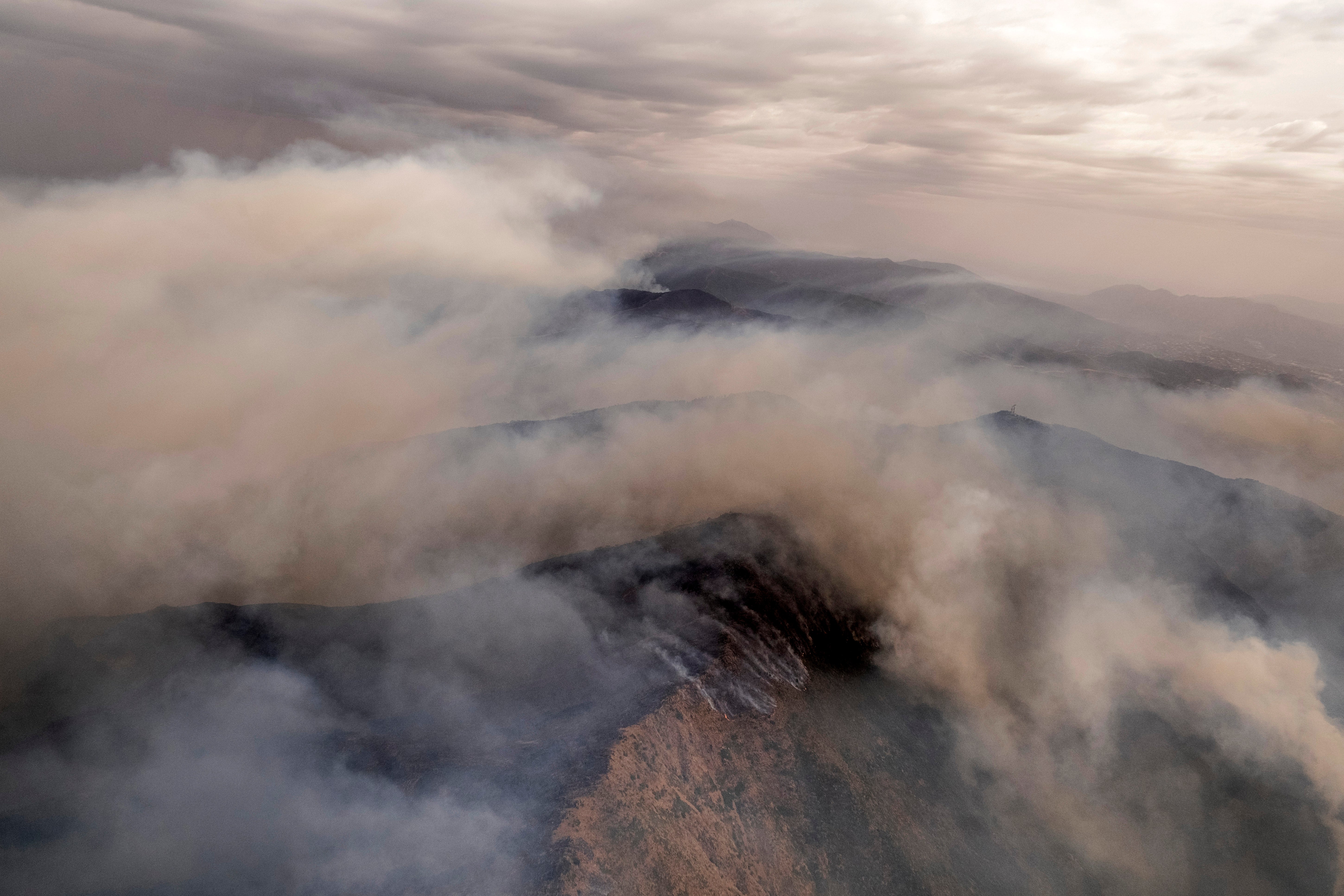
Mr Sanchez was referring to the way old farming methods, which helped create natural breaks which stopped the spread of wildfires, have been abandoned after a steady exodus of farmers from the countryside to the cities.
Maria Melero, of the woodland programme of the Worldwide Fund for Nature (WWF) in Spain, said the “super wildfire” on the Costa del Sol was beyond the capacity of the fire crews to bring it under control.
“It is believed that this fire was started intentionally though that is under investigation. This fire was generating more fires so it did not matter how many firefighters were used to stop it. However, it was aggravated by decades of rural depopulation,” she told The Independent.
“This means that the forest management does not create natural ‘mosaics’. These are areas of different land use which create breaks which stop the fire spreading.”
The farmers have left because they cannot earn as much money as they can in the cities. It is a vicious circle
Over decades many farmers have given up and taken better paid jobs in the cities, said Ms Melero, which affected forest management.
“The farmers have left because they cannot earn as much money as they can in the cities. It is a vicious circle,” she said.
“Meanwhile, in the hills, it means that there are large areas of inflammable material which can help the spread of the fire. It is an explosive cocktail.”
Spain’s left-wing government is trying to redress decades of rural depopulation with a €10bn (£8.54bn) investment plan launched in March.
Among 8,131 small villages, 3,403 are classed as at risk of dying out, according to the country’s National Statistics Institute – almost 43 per cent.
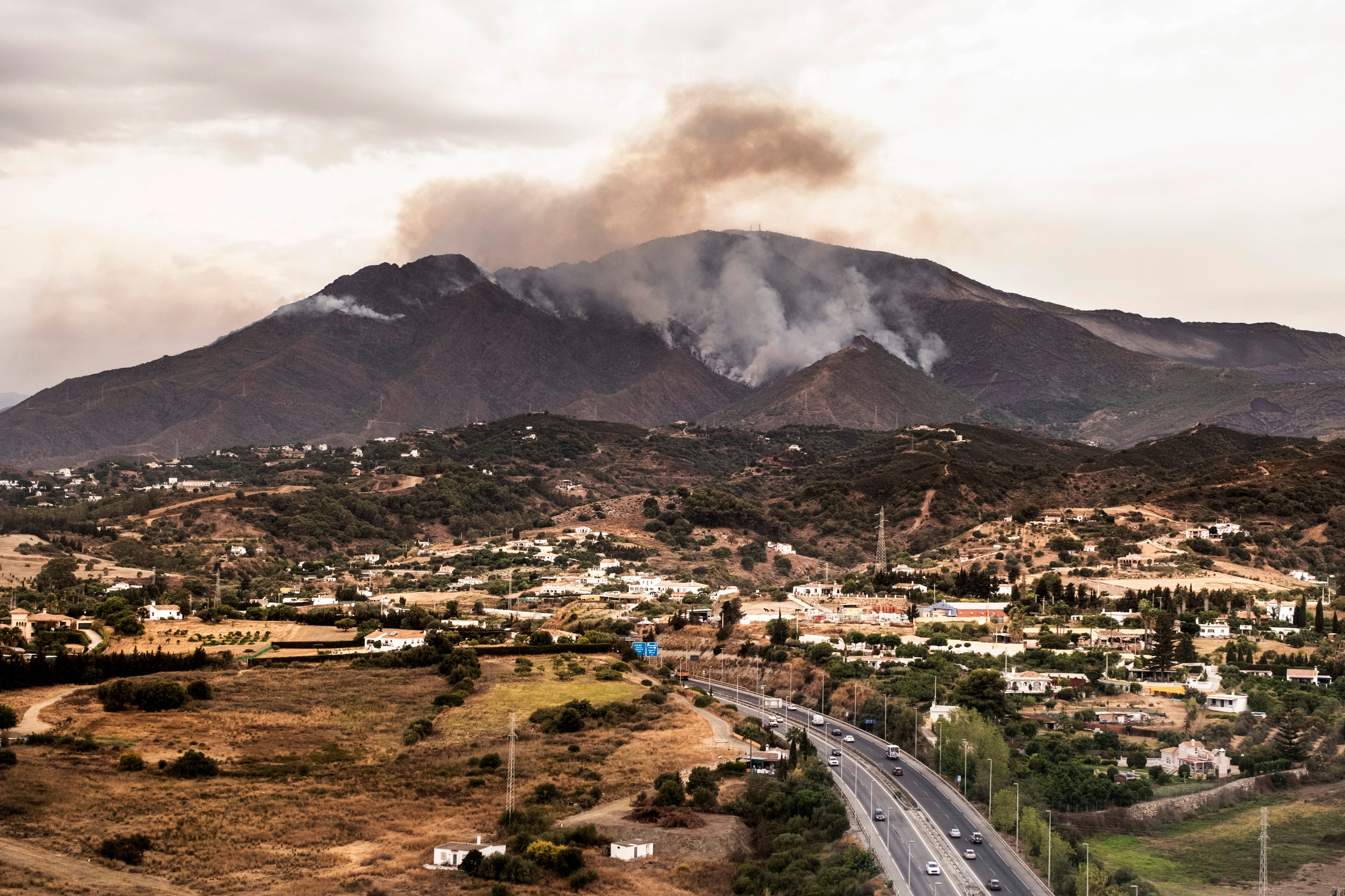
Ms Melero said after a summer of soaring temperatures in southern Spain caused by climate change, the vegetation would have been dry and susceptible to a blaze.
Temperatures reached 47.2C this summer in Montoro, near Cordoba in Andalusia last month and it has been one of the hottest summers on record.
WWF launched a campaign on Tuesday calling on the Spanish government to put measures in place to prevent more “super wildfires” taking place by introducing fire breaks and to try to bring back farmers to the land.
Climate change does not cause forest fires but it dries up vegetation making them more susceptible to being set on fire, said Ferran Dalmau Rovira, director of an environmental engineering consultancy Medi XXI GSA, who specialises in forest fires.
“Climate change does not start fires. It is not the spark. But in the case of this fire in Estepona there has been a catastrophic combination: over decades farmers have abandoned the land, either because they have retired or their sons have found different jobs, so this helps build up a situation which helps a fire to spread because there is no extensive farming,” he said.
“Combine this with climate change which effectively modifies the weather system so for example an area which sometimes gets a certain amount of rain then gets only half of that. It means the vegetation is going to disappear.”
It is well known that rural depopulation can lead to more forest fires. It is one of the consequences if you stop using traditional methods of farming which would manage the land and create natural fire breaks
Described as a “hungry monster” by fire chiefs because of its virulence, the blaze near Estepona has been likened to another in Portugal in 2017 in which 66 people were killed.
“It is well known that rural depopulation can lead to more forest fires. It is one of the consequences if you stop using traditional methods of farming which would manage the land and create natural fire breaks,” Alejandro Macarron Larumbe, who heads the Demographic Renaissance Foundation in Spain, a think tank which campaigns to redress rural depopulation, told The Independent.
A 2020 WWF report said wildfires were up 20 per cent compared with the year before.
“The carbon released into the atmosphere by the fires further increases global heating, and the vicious circle gets worse. This establishes a positive feedback loop that amplifies the role of extreme hot dry weather in generating more frequent intense fires that in turn generate increased forest carbon emissions,” the report said.
The report added that the rise of wildfires around the world had caused 340,000 premature deaths from respiratory and cardiovascular issues attributed to wildfire smoke.
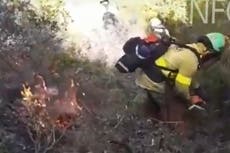

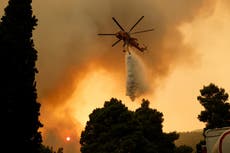
Join our commenting forum
Join thought-provoking conversations, follow other Independent readers and see their replies
Comments